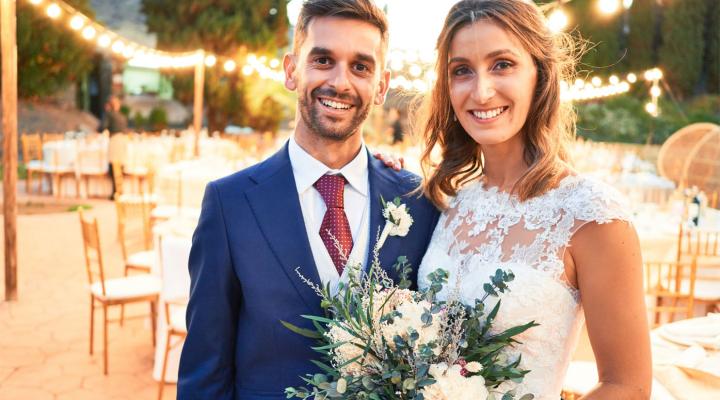
If you’re looking to get married overseas then there’s no better place to choose than sunny Spain: with its year-round temperate climate, easy access to some of the best beaches in Europe, rich culture, and fine cuisine sure to get all of your guests talking, you’re almost guaranteed an idyllic wedding! And as an added bonus, you can combine your wedding with your honeymoon too.
One of the other benefits of getting married in Spain? Unlike weddings in the UK, you won’t have to worry about whether it will rain on your wedding day! Unfortunately, the payoff for this is that you will have to pass through a small bundle of Spanish red tape in order to legalise your happy day. Thinking of getting married in Spain? Then here’s everything you need to know:
Choosing the Right Type of Wedding for You
There are three main different types of wedding or wedding ceremony in Spain: these are a Catholic church wedding, a civil wedding, or a wedding blessing. The paperwork needed and other requirements will depend on the type of wedding you choose:
Catholic Church Wedding
The most common type of wedding in Spain is also the only kind of religious ceremony you can have in the country: a Roman Catholic wedding. In order to have a Roman Catholic wedding, either the bride or the groom (preferably both) should be a practicing Catholic. Organising a catholic wedding in Spain can be quite time consuming, meaning that it is generally quite difficult for anyone who isn’t already a resident in the country.
It’s important to note that if either party has previously been divorced, you can’t get married in a Catholic church. Spain is a deeply religious country, and marriage is taken very seriously, which is why church weddings can be so difficult to organise.
Civil Wedding Ceremony
If you’re not religious, then a civil wedding ceremony might well be a more suitable option for you. Just like a church wedding, a civil wedding is a legally binding ceremony and your Spanish wedding will be considered valid in the UK, and across the world, provided you have secured the correct paperwork. Once your ceremony has taken place, it must be registered in the civil registry at the local town hall or Justice of the Peace. The ceremony can be conducted in English, if you’re not a Spanish speaker, but all of your certificates and legal documentation will be issued in Spanish.
Wedding Blessing
If the red tape of organising a wedding seems a little too complicated, and a little too much like hard work, then you could always host a wedding blessing instead. Although it’s not a legally binding wedding, a wedding blessing is the most popular option for brides and grooms who don’t live in Spain. It offers much more flexibility for couples who want to choose a non-standard venue (such as getting married on the beach) or inject a little more personalisation into their day. It also means that you can conduct the legal aspect of your wedding in a registry office in the UK, allowing you to fully relax and enjoy your wedding in Spain knowing that the legal formalities have already been taken care of.
The Legal Requirements to Get Married in Spain
Before you can be legally married in Spain (either in a church or civil ceremony) you must have your banns read. The banns are your public declaration of your intent to marry, and there is a minimum approval period of 21 days between your application for your banns to be called and your wedding. This allows sufficient time for your potential marriage to be contested if any individual feels they have a legal challenge to it. Because of the time it takes for this legal paperwork to be processed, you are advised to allow at least 45 days for all of your forms to be processed.
Other legal requirements that must be met in order to get married in Spain include fulfilling the age requirement: You must be over 16 and living independently to get married in Spain. If you are aged between 16 and 18 then you also need the permission of your parents. If you choose a church wedding then you will also need proof that you are a practicing Catholic: this should be your baptism certificate as well as a letter from your regular Parish priest.
Finally, you will need to provide the following list of documentation. All of your documents should be translated into Spanish, and those translations should be no less that three months old.
- A current valid passport
- Your original birth certificates
- Proof of your availability to marry (including any annulment, divorce certificates, or death certificates if either party has been widowed)
- Certificate of residence, proving you have been a Spanish resident for at least two years
If you don’t live in Spain then we advise that you start the processes of preparing for your wedding as soon as possible: the process can be lengthy. If you aren’t a fan of paperwork, then it is possible to hire a company in Spain that could help to save you a lot of time and unwanted stress. Your wedding day is a day that should be truly unforgettable, and a Spanish wedding certainly would be.
Are you thinking of moving to Spain? Looking to buy your own honeymoon cottage, a foreign bolt hole, or relocate and start your marriage living in Spain? Then why not get in touch with our local property experts, who are perfectly placed to assist you with your property search.

 English
English Español
Español Deutsch
Deutsch Français
Français Svenska
Svenska Nederlands
Nederlands Italiano
Italiano Norsk
Norsk Русский
Русский

































